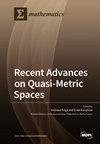A Multi-Strategy Enhanced Hybrid Ant–Whale Algorithm and Its Applications in Machine Learning
IF 2.3
3区 数学
Q1 MATHEMATICS
引用次数: 0
Abstract
Based on the principles of biomimicry, evolutionary algorithms (EAs) have been widely applied across diverse domains to tackle practical challenges. However, the inherent limitations of these algorithms call for further refinement to strike a delicate balance between global exploration and local exploitation. Thus, this paper introduces a novel multi-strategy enhanced hybrid algorithm called MHWACO, which integrates a Whale Optimization Algorithm (WOA) and Ant Colony Optimization (ACO). Initially, MHWACO employs Gaussian perturbation optimization for individual initialization. Subsequently, individuals selectively undertake either localized exploration based on the refined WOA or global prospecting anchored in the Golden Sine Algorithm (Golden-SA), determined by transition probabilities. Inspired by the collaborative behavior of ant colonies, a Flight Ant (FA) strategy is proposed to guide unoptimized individuals toward potential global optimal solutions. Finally, the Gaussian scatter search (GSS) strategy is activated during low population activity, striking a balance between global exploration and local exploitation capabilities. Moreover, the efficacy of Support Vector Regression (SVR) and random forest (RF) as regression models heavily depends on parameter selection. In response, we have devised the MHWACO-SVM and MHWACO-RF models to refine the selection of parameters, applying them to various real-world problems such as stock prediction, housing estimation, disease forecasting, fire prediction, and air quality monitoring. Experimental comparisons against 9 newly proposed intelligent optimization algorithms and 9 enhanced algorithms across 34 benchmark test functions and the CEC2022 benchmark suite, highlight the notable superiority and efficacy of MSWOA in addressing global optimization problems. Finally, the proposed MHWACO-SVM and MHWACO-RF models outperform other regression models across key metrics such as the Mean Bias Error (MBE), Coefficient of Determination (R2), Mean Absolute Error (MAE), Explained Variance Score (EVS), and Median Absolute Error (MEAE).多策略增强型混合蚁鲸算法及其在机器学习中的应用
基于仿生学原理,进化算法(EAs)已被广泛应用于不同领域,以应对实际挑战。然而,这些算法的固有局限性要求进一步完善,以在全局探索和局部开发之间取得微妙的平衡。因此,本文介绍了一种名为 MHWACO 的新型多策略增强混合算法,它集成了鲸鱼优化算法(WOA)和蚁群优化算法(ACO)。最初,MHWACO 采用高斯扰动优化进行个体初始化。随后,个体选择性地进行基于精炼 WOA 的局部探索或基于黄金正弦算法(Golden-SA)的全局勘探,这由过渡概率决定。受蚂蚁群落协作行为的启发,我们提出了一种飞行蚂蚁(FA)策略,以引导未优化个体找到潜在的全局最优解。最后,高斯散点搜索(GSS)策略在种群活动较低时被激活,从而在全局探索和局部开发能力之间取得平衡。此外,支持向量回归(SVR)和随机森林(RF)作为回归模型的功效在很大程度上取决于参数选择。为此,我们设计了 MHWACO-SVM 和 MHWACO-RF 模型来改进参数选择,并将其应用于股票预测、住房估算、疾病预测、火灾预测和空气质量监测等各种实际问题。在 34 个基准测试函数和 CEC2022 基准套件中,MSWOA 与 9 种新提出的智能优化算法和 9 种增强算法进行了实验比较,凸显了 MSWOA 在解决全局优化问题方面的显著优势和功效。最后,在平均偏差 (MBE)、决定系数 (R2)、平均绝对误差 (MAE)、解释方差得分 (EVS) 和中位绝对误差 (MEAE) 等关键指标方面,拟议的 MHWACO-SVM 和 MHWACO-RF 模型优于其他回归模型。
本文章由计算机程序翻译,如有差异,请以英文原文为准。
求助全文
约1分钟内获得全文
求助全文
来源期刊

Mathematics
Mathematics-General Mathematics
CiteScore
4.00
自引率
16.70%
发文量
4032
审稿时长
21.9 days
期刊介绍:
Mathematics (ISSN 2227-7390) is an international, open access journal which provides an advanced forum for studies related to mathematical sciences. It devotes exclusively to the publication of high-quality reviews, regular research papers and short communications in all areas of pure and applied mathematics. Mathematics also publishes timely and thorough survey articles on current trends, new theoretical techniques, novel ideas and new mathematical tools in different branches of mathematics.
 求助内容:
求助内容: 应助结果提醒方式:
应助结果提醒方式:


